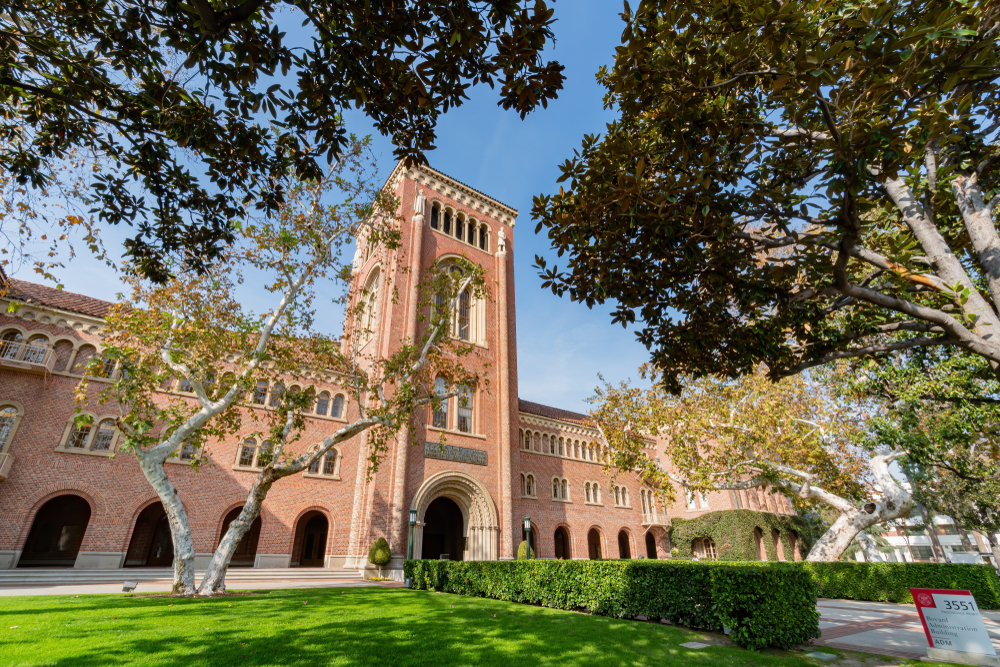Eight fraternities recently disaffiliated from the University of Southern California following the university’s response to allegations of horrible sexual assaults on campus in 2021. During the fall semester of 2021, there were several reports of girls being drugged and sexually assaulted at fraternity events. USC delayed taking action and informing the student body of the reports. (According to the LAPD via ABC News: “as of August no suspects have been identified and there are no arrests.”) When the allegations were finally revealed, however, USC students understandably protested. This past summer, the university issued a new set of strict party guidelines and gave fraternities until August 22 to make their decisions about compliance.
According to the Seattle Times, the new rules included
A working group of fraternity and sorority leaders, faculty, administrators and staff subsequently drew up an action plan to strengthen safety measures. They include posting security guards at parties, including stairwells and hallways leading to bedrooms; using scanners to screen for fake IDs; distributing wristbands to those older than 21; banning kegs; and requiring risk review meetings before and after events.
Tau Kappa Epsilon, Beta Theta Pi, Pi Kappa Alpha, Kappa Alpha, Lambda Chi Alpha, Sigma Chi, Zeta Beta Tau, and Sigma Alpha Mu all decided to disaffiliate from the university instead of complying with the new regulations. Disaffiliation means that these fraternities are no longer recognized as student organizations by the university, are not allowed to participate in any on-campus student-life activities, will lose access to campus facilities for any of their activities, and must remove the university logo from all their marketing. Finally, the university will have no oversight or jurisdiction over these now-unaffiliated organizations, so if there are any problems in the future, the university has no standing to issue directives of any kind to these fraternities.
In my view, the fraternity disaffiliations make sense and represent the rational consequences of the university’s misstep. The imposition of overly harsh rules squandered an opportunity to appeal to moral virtue to inspire and habituate a new culture on campus. These fraternities will now likely be viewed as communities of young men who resisted following rules for the sake of others’ safety, especially women’s safety. But that’s neither true nor the point. The problem with the rules is that they imply that these men are incapable of moral virtue without coercion and threat of punishment.
Introducing more punitive measures to prevent misbehavior will neither build nor sustain the moral virtue the university seeks for its students in fraternities. If you want men in college to do the right thing, the threat of punishment usually provokes more rule breaking, not less. By contrast, what makes moral excellence an aspiration is the direct invitation and encouragement to these students to be men of outstanding virtue. It seems that the university merely wants these men to be less bad. This communicates, in part, that the university does not believe the men in fraternities are redeemable and that their character is such that nothing but formal restraint and punishment can prove effective in moderating their behavior. Assuming these young men will make better life choices simply to avoid punishment is not the same thing as forming virtue.
The Acton Institute believes that humans “are by nature acting persons,” that is, “through human action, the person can actualize his potentiality by freely choosing the moral goods that fulfill his nature.” This takes the capacity for moral actions seriously and respects the inherent dignity of every human being. The irony is that USC would have achieved much better results in encouraging virtue in its fraternity community had it invited fraternity members to choose moral goods and make the sacrifices necessary to be men who live above reproach. Is it because USC has no moral foundation for inspiring human action toward the good that it is in no position to invite fraternity men to devote themselves to a life of prudence, justice, fortitude, and temperance? If USC had believed in the moral potential of fraternity men, appealing to moral goods could have created the conditions for pro-social aspirations. Instead, they chose a punitive approach and overregulation, and so rejected the opportunity to develop their students. What could have been a moment for the university itself to take a step back and look at what resources it had to form character in its male students became instead an opportunity to overreact based on blowback from the student body.
A moral-goods approach could have focused on helping fraternities conduct their events in such a way that facilitates human flourishing. Fun and flourishing would have been a great way to invite these students to think differently about their events—and their lives. Instead of a punitive approach, the focus should have been on formation. If producing moral goods is the university’s priority for fraternities, its officers should want only what is truly good for those who live in fraternities and for those who attend fraternity events. The question is, does the university believe these young men are capable of rising to the occasion? The pursuit of prudence, justice, fortitude, and temperance changes the way alcohol is consumed and the way women are treated, as well as the intersection of the two. In the end, it is growing in virtue that sustains a culture of moral excellence on college campuses, not the threat of punishment and overregulation.

